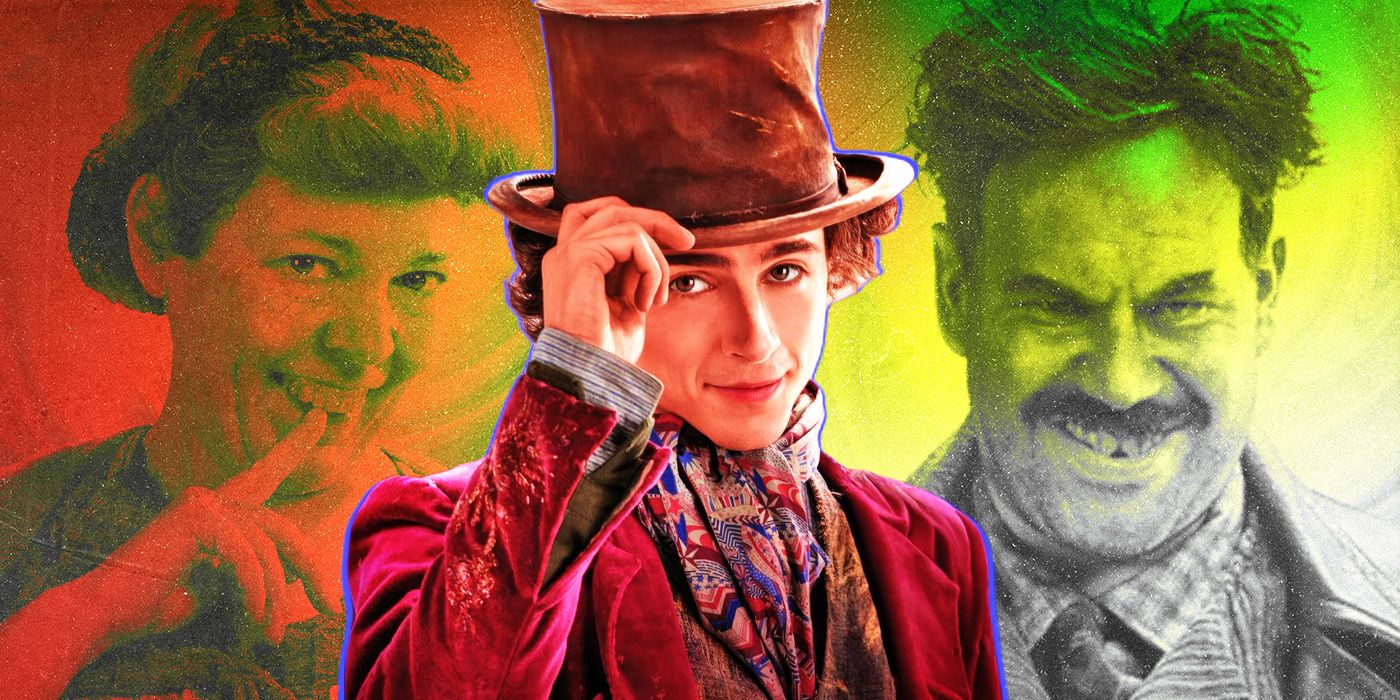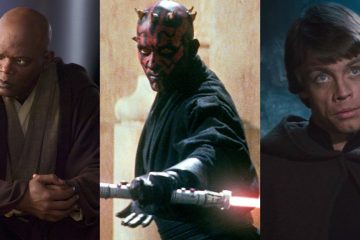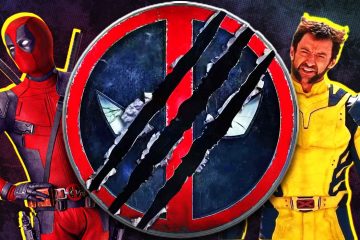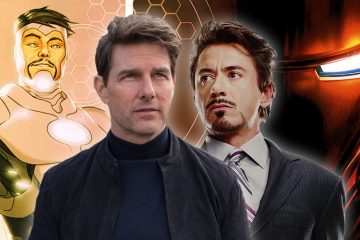Wonka serves largely as a prequel to Roald Dahl’s classic children’s book Charlie and the Chocolate Factory, covering magical candymaker Willy Wonka’s early days establishing his business. More specifically, it’s an homage to the 1971 movie Willy Wonka and the Chocolate Factory, with the main character essentially being an earlier version of Gene Wilder’s beloved take on the character. That entails not only a similar (if slightly gentler) personality and look, as well as touches like an orange-skinned Oompa Loompa with green hair. Despite the movie’s status as an original story, Wonka takes great pains to establish a Dahl-esque atmosphere by making it feel like the author’s works. It helps the film succeed on its own merits without diminishing or distancing itself from its well-loved predecessors.The trend also encompasses its villains: smug, mean-spirited adults who would be right at home with the farmers in The Fantastic Mr. Fox or James and the Giant Peach’s horrible Aunt Sponge and Aunt Spiker. Foremost among them are Mrs. Scrubitt and Mr. Bleacher, who force residents in their boarding house to work in the laundry in the basement. A mid-credits sequence draws a visual connection between them and the sinister protagonists of another Dahl children’s book, The Twits, which is slated for an animated movie adaptation on Netflix in 2025. That makes Wonka a workable prequel for that book as well as Charlie and the Chocolate Factory, and while the fit isn’t perfect, it’s close enough to connect the two stories with just a little effort.In the end, they’re arrested for sabotaging Wonka’s shop and consume some of his magic ingredients in an attempt to dispose of the evidence. That causes their faces to change color and hair to grow long and scraggly. The Candy Cartel itself comes from Dahl’s books as other chocolate-makers jealous of his magical abilities and eager to stop him by any means necessary. Wonka spells out the origins of their feud, with the title character portrayed as a little soul with big ideas that threaten the powers that be. Scrubitt and Bleacher are their willing accomplices, happy to do the dirty work and even going so far as to hold the niece of ringleader Mr. Slugworth in their basement in perpetuity. While they don’t come from Dahl, they certainly fit the profile of many of his villains.
Wonka serves largely as a prequel to Roald Dahl’s classic children’s book Charlie and the Chocolate Factory, covering magical candymaker Willy Wonka’s early days establishing his business. More specifically, it’s an homage to the 1971 movie Willy Wonka and the Chocolate Factory, with the main character essentially being an earlier version of Gene Wilder’s beloved take on the character. That entails not only a similar (if slightly gentler) personality and look, as well as touches like an orange-skinned Oompa Loompa with green hair. Despite the movie’s status as an original story, Wonka takes great pains to establish a Dahl-esque atmosphere by making it feel like the author’s works. It helps the film succeed on its own merits without diminishing or distancing itself from its well-loved predecessors.
The trend also encompasses its villains: smug, mean-spirited adults who would be right at home with the farmers in The Fantastic Mr. Fox or James and the Giant Peach’s horrible Aunt Sponge and Aunt Spiker. Foremost among them are Mrs. Scrubitt and Mr. Bleacher, who force residents in their boarding house to work in the laundry in the basement. A mid-credits sequence draws a visual connection between them and the sinister protagonists of another Dahl children’s book, The Twits, which is slated for an animated movie adaptation on Netflix in 2025. That makes Wonka a workable prequel for that book as well as Charlie and the Chocolate Factory, and while the fit isn’t perfect, it’s close enough to connect the two stories with just a little effort.
In the end, they’re arrested for sabotaging Wonka’s shop and consume some of his magic ingredients in an attempt to dispose of the evidence. That causes their faces to change color and hair to grow long and scraggly. The Candy Cartel itself comes from Dahl’s books as other chocolate-makers jealous of his magical abilities and eager to stop him by any means necessary. Wonka spells out the origins of their feud, with the title character portrayed as a little soul with big ideas that threaten the powers that be. Scrubitt and Bleacher are their willing accomplices, happy to do the dirty work and even going so far as to hold the niece of ringleader Mr. Slugworth in their basement in perpetuity. While they don’t come from Dahl, they certainly fit the profile of many of his villains.
#Wonka #MidCredits #Scene #Tease #Roald #Dahl #Classic
Note:- (Not all news on the site expresses the point of view of the site, but we transmit this news automatically and translate it through programmatic technology on the site and not from a human editor. The content is auto-generated from a syndicated feed.))



